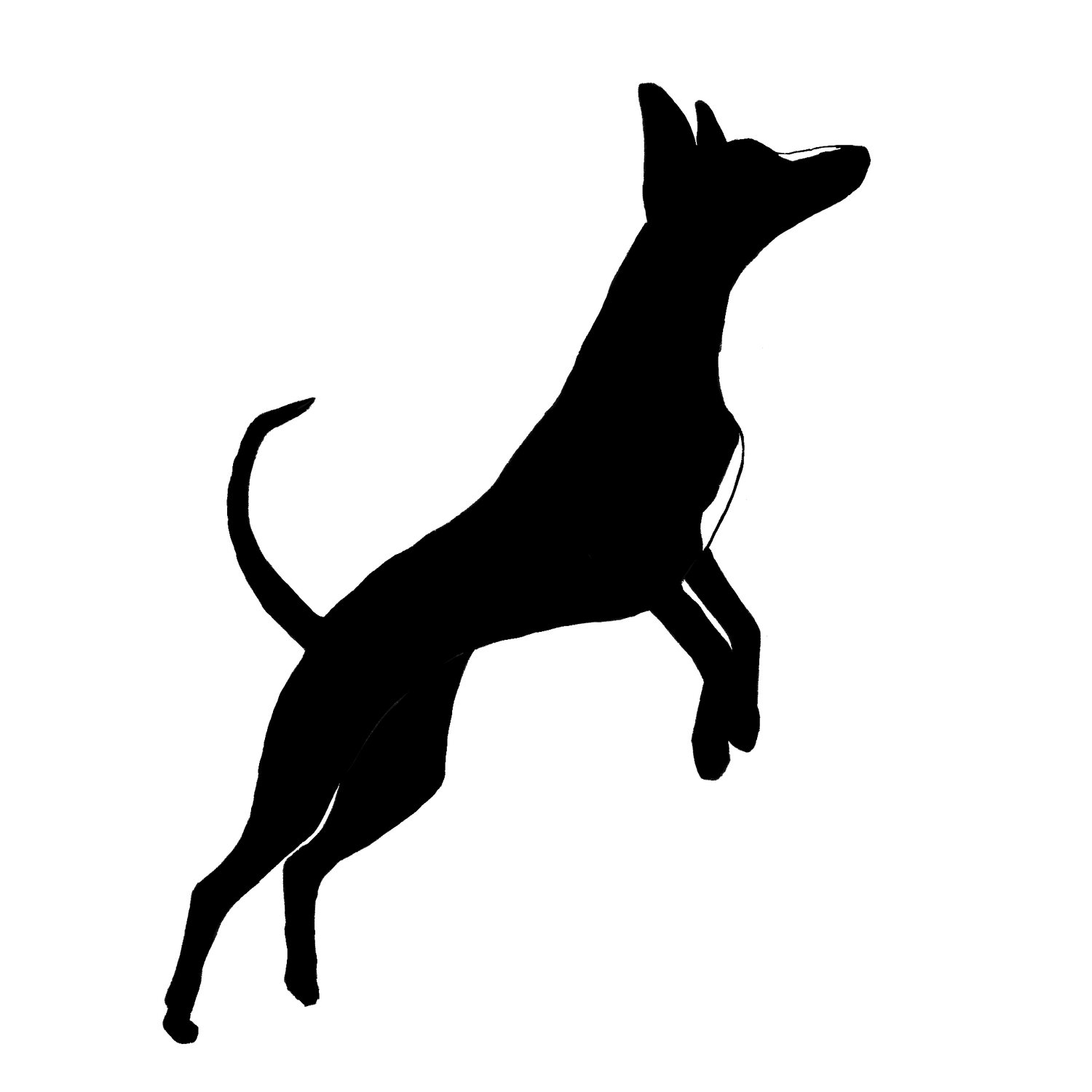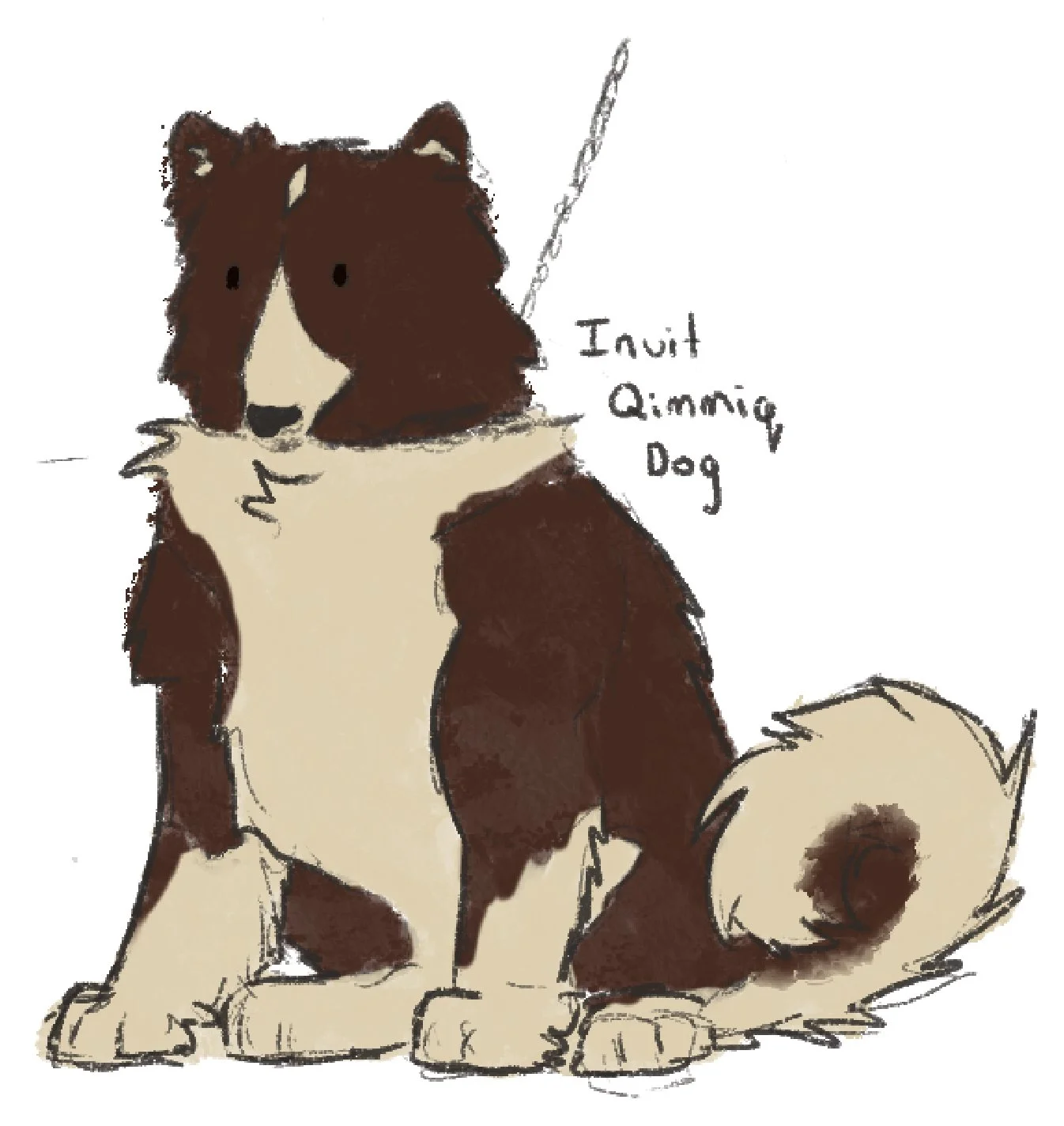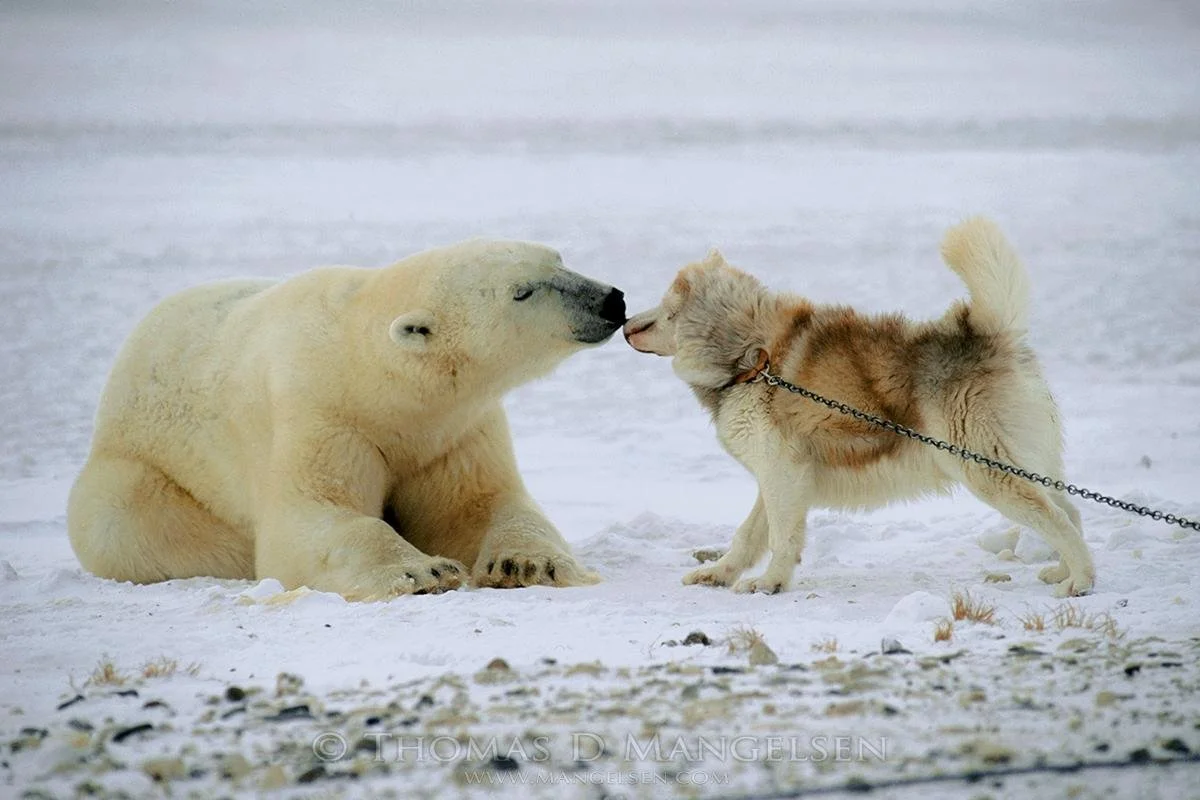Qimmeerukkaluarpat
When The Dogs Are Gone
This word is a bit long and incomprehensible for an English speaker: that’s because it’s Inuktitut, the language spoken by the Inuit of the Arctic North. It means “when the dogs are gone”, and is borrowed from the Danish docu-series published by the Natural History Museum of Denmark in 2019. The first episode can be watched here, and I highly recommend it. a warning: if you are tired of hearing about the destruction of Indigenous culture, are sensitive to these topics, or just having a bad day, I’d recommend leaving this post for another time or skipping it altogether. It is upsetting. a summary is posted at the end of this post.
This post isn’t only to talk about this short series; it’s to talk about one of my greatest passion: preservation of Indigenous breeds.
I cannot stress this enough: the massacre of the Inuit Qimmiq is one of the most powerful acts of colonialism that has been enacted in North America.
This is not because I like dogs a lot. It is not because just the name of Qimmiq in the Canadian Kennel Club is “Canadian Eskimo Dog” (something I’ll get into later). There are extremely specific, insidious reasons that have impacted the entire culture of the Arctic North.
background:
It was the introduction of An Ordinance Respecting Dogs that began the downfall and extermination of the Inuit sled dog. As the control of sled dog populations was seen as a safety and health importance, this law was enacted to prohibit Inuit people from allowing their dogs to run free in any area, defined by a Commissioner or local authority. This law was also not translated into Inuktitut, only explained by members of the Royal Canadian Mounted Police (RCMP) of which very few spoke Inuktitut, and until the late 1960s the Inuit had no representatives on the legislature. There was no consent, control, consultation or participation from any Inuit people.
they’re having a moment, let them be.
The killing of Inuit sled dogs began with this Ordinance. It gave the RCMP the right to seize any dog deemed outside their loosely-defined area, and if the owner did not come for the dog after five days the officer could sell the dog. In later revisions of the Ordinance, the RCMP also had the right to shoot at and kill any dog that wasn’t captured and was running, and also gave them the right to kill an injured or otherwise “dangerous” seized dog in their possession any time “as he sees fit”. Subsection 2 also allowed officers to not give any compensation for a dog shot.
In 1961 there was approximately 800 to 900 Inuit sled dogs in the Cumberland Sound area and Baffin Island. Over the winter of 1961 there was an outbreak of distemper, and by early March there were about 270 dogs left. In Kimiksuk, a camp with a population of 121 Inuit, had only 21 dogs by February.
What did this do? Well:
cuts off travel/communication between communities
cuts off hunting ability, or lessens it severely
cuts off the people from the land
isolates people to their towns
makes a sedentary people
Imagine living your life as you do today. Maybe you live in a city, so imagine you’re in the countryside. You have to use a mule to travel around, as everything is too far away to merely walk, and there are frightening creatures around the area. The mule has protected you and fought off wolves a coyotes before, so the mule makes you feel safe.
You ride this mule into town to see friends or family. Maybe you take it out for a gallivant in the country. Whatever it may be, your mule is your friend. So you get a few more. Now you can take more belongings with you. Maybe you have kids or siblings or older parents, and they can come too.
Now imagine that one day, a day the same as any other, people you’ve never seen before ride into town on large, terrifying horses. They don’t speak your language, though they’re clearly telling you something; then they slaughter all of your mules and leave.
I don’t know how many people reading have had contact with mules or horses or have been to (or lived in) the countryside, but I think the idea of a stranger coming to take one of your most beloved objects or friends is terrifying for anyone.



